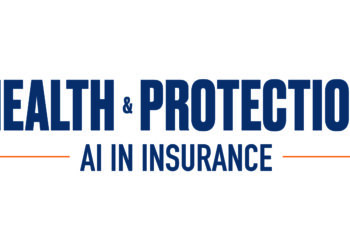The pandemic has had the combined effect of focusing people’s minds on the fact they are not invincible and causing many to interrogate their employer’s group risk offering for the first time.
And employers are also increasingly seeing the importance of offering such cover – particularly SMEs who make up the bulk of companies operating in the UK.
But to capture this market, are insurers and advisers adequately raising their game and tailoring their offerings to the growing numbers of SMEs seeking to introduce group risk benefits?
“I’ve noticed quite a significant change in attitude in terms of what people get from their employers due to what’s happened with Covid,” Roy Mcloughlin, associate director at Cavendish Ware, tells Health & Protection.
“People are looking at their own lives a bit more, saying: ‘Things can go wrong. We’re not as indestructible as we thought we were’ and then asking what they get from their work.
“For example, if you asked your 10 best friends what their sick pay scheme is, I would be amazed if any of them knew… because nobody knows.
“But up until a few years back if you asked people, they would say ‘I’m not going to be ill so I don’t really care’.
“Clients want security now. People have become insecure because of Covid and therefore it’s one of those mathematical equations in school – insecurity equals a desire for security and the role of our profession is to deliver security.”
Booming interest from SMEs
However, McLoughlin believes advisers can sometimes be guilty of concentrating on delivering that security to employees at larger clients at the expense of those working for smaller businesses.
“My cynicism says there is not enough concentration on the SME sector,” he continues.
“The United Kingdom is dominated by companies with 10 or fewer employees so why are we all fixated with 1,000 people in the company, 2,000 people in the company, 10,000 people in the company?”
Charlie Cousins is founder of Hooray Health & Protection, a firm that specialises in working with the start-up and SME market.
He tells Health & Protection that while most brokers tend to resist targeting this sector, he has seen booming interest in group life insurance enquiries from start-ups competing with each other.
While converting queries into uptake has proven difficult due to the increased cost of group income protection (GIP), Cousins says firms are looking to reward their staff and have been using office rental savings to spend on things like employee benefits.
“The majority of our clients are proactively coming to us, with 90% of the sales we’ve had through incoming business,” he says.
“I think the majority of the ones we’re having a conversation with are looking to keep up with the Joneses, keeping up with their competitors and making sure they’re offering a level package across the board.”
A sizeable protection gap
Kathryn Stringer, managing director for group protection at insurer Aviva, is certainly alive to the protection cover gap, noting that SMEs make up 99% of business in the UK economy, generate seven out of 10 jobs and contribute 50% of national income.
“While 1.4 million of these SMEs could be eligible to take out a group protection product, only approximately 10% of them hold cover. So, we know there is still a sizeable protection gap in this customer demographic,” she says.
“With one in five UK adults keen to start a business in 2021, yet almost 15% of UK businesses at risk of closure, with smaller businesses particularly vulnerable, we recognise the importance of mitigating risk for these businesses.
“Throughout the Covid pandemic, we have seen many SMEs face additional and unique challenges, resulting in a heightened awareness of and increased demand for group protection and the extensive wellbeing and support services that go with them.”
Dan Crook, protection sales director at Canada Life echoed those sentiments about the demand within smaller employers.
The insurer’s WeCare product which launched in March 2020 proved so popular among SME clients that it was extended to all GIP customers earlier this year, giving more than 450,000 employees and their families access to the range of health and wellbeing services.
A shining light during the pandemic
Chris Jenkinson, senior consultant at Lloyd & Co Employee Benefits, tells Health & Protection that group protection providers have proven a “shining light” during the pandemic in terms of claims performance and the additional services they provide.
“What is historically an insurance scheme, which gives peace of mind in worst case scenarios, is now becoming a very tangible benefit for employees, so that’s a noticeable change and it’s all happened in line with Covid,” he says.
“Giving staff access to virtual GPs at times like these is invaluable and the same goes for employee assistance programmes over the last 18 months.
“The usage of those has gone through the roof. That extra support has completely changed group protection as a proposition for companies now.”
And Ellie Sultana, employee benefits manager at Advo Group, believes these additional services are here to stay.
“I think even before the pandemic, mental health was huge and we’re not post-pandemic are we unfortunately?” she says.
“But as we come through that and continue to look at returning to people to work, I think these services are going to be more prevalent and necessary.”
Insurance must lie at heart of proposition
However, Hooray Health & Protection’s Cousins adds that ultimately, the actual insurance should always lie at the heart of the proposition advisers are putting forward.
“Insurance should always be at the heart of what we’re selling but I do wonder sometimes,” he continues.
“Added value services are fantastic but let’s have a look at the stats – there are 1.3 million businesses in the UK that have employees but only around 56,000 have death in service and 18,000 have GIP.
“Considering insurers aren’t selling direct it’s down to the broker market and I think the fact is added value services are great but if we’re looking to grow the market, we need to be putting the insurance first and actually getting the message out there.”
He notes the number of people who have no clue about death in service insurance or GIP is “astounding”, and that is what conversations should focus on.
“Insurers are doing a good service, they’re paying claims, they’re providing insurance but that’s the core in my opinion through group risk, the insurance is the core and that’s what we need to focus on.
“I think people spend too much time focusing on the added value benefits,” he concludes.






